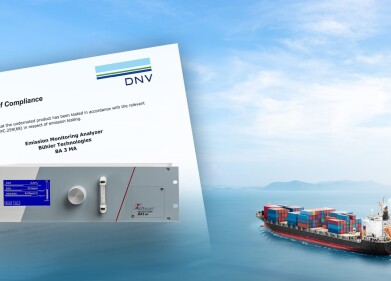Measurement and testing
3 Aspects of Lithium Ion Batteries That Need Testing
Sep 24 2022
Despite being a relatively safe and reliable technology, lithium ion batteries undergo a huge amount of testing. This is to ensure lithium ion batteries perform as advertised, and to guarantee safety during manufacturing, shipping and consumer use. Read on to find out more about the different aspects of lithium ion batteries that need testing.
-
Transportation testing for stability
It’s common for lithium ion batteries components to be manufactured in countries like China, then assembled elsewhere. During transport, lithium ion batteries are categorised as Class 9 dangerous good. This is due to their risk as a potential fire hazard.
Prior to shipping, all lithium ion batteries must meet requirements outlined in Section 38.3 of the UN Manual of Tests and Criteria (UN Transportation Testing). These requirements simulate the shipping and handling conditions the batteries will undergo during transport. This includes extreme temperatures, as well as factors like pressure and shock. The tests are designed to ensure all lithium ion batteries and cells remain stable during transport, whether they’re travelling by road, rail, sea or air.
-
Operational safety testing
Lithium ion batteries are used to power everything from handheld devices and power tools to medical equipment and commercial IT systems. Operational safety is critical, which is where IEC 62133 comes in. This is one of the most important standards manufacturers must meet when designing and assembling lithium ion batteries for use in global markets. IEC 62133 assesses a variety of safety aspects, including external short circuit behaviour, stability after freefall impact and response to forced discharge.
-
Electrolyte characteristics
Electrolytes facilitate the transportation of lithium ions within the cell and can have a big impact on how a battery performs. Testing methods like Gas Chromatography Mass Spectrometry (GC/MS) are used to analyse electrolytes and improve performance.
Recently, a new generation of solid-state lithium ion batteries has reimagined the limits of electric vehicle (EV) performance. In a report published by the Fraunhofer Institute, the authors explore how swapping traditional liquid electrolytes for solid electrolytes can drastically improve energy density, accelerate charge times, improve thermal stability and increase overall life cycle.
“In this lamination step, the cathode, the solid electrolyte separator, the anode and the current collector are brought together and pressed onto each other via rollers,” write the authors.
Nissan is one of several auto giants pursuing the technology in a bid to design better performing EVs. “In the feasibility study, we have been able to confirm the realisation of high energy density, rapid charging performance and durability performance,” says a Nissan spokesperson. Anodes are also being replaced with materials like lithium metal and silicon. This breakthrough is allowing manufacturers to design batteries with exceptionally high energy densities.
Despite not having internal combustion engines, EVs still require grease. Find out more about the role of lubrication in EVs and hybrid vehicles in 'GREASES: The New Frontier'.
The chemistry of lithium ion batteries
Lithium ion battery chemistry is complex, with multiple factors determining characteristics like energy density, charge time and safety credentials. Find out more about the technology, as well as other test methods such as Inductively Coupled Plasma Optical Emission Spectroscopy (ICP-OES), in our complete guide, ‘Lithium Ion Batteries: Types, Testing & Uses’.
Digital Edition
PIN 26.1 Feb/Mar 2025
March 2025
Analytical Instrumentation - Elemental Analysis for Quality and Process Control at Refineries, for Lubricants and Wear Metals in Engine Oils - Synthetic Lubricants: New Developments - Scaling...
View all digital editions
Events
Apr 14 2025 Moscow, Russia
Apr 15 2025 Moscow, Russia
Apr 22 2025 Hammamet, Tunisia
Apr 22 2025 Kintex, South Korea
Solar & Energy Storage Summit 2025
Apr 23 2025 Denver, CO, USA



















